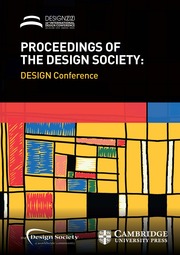Crossref Citations
This article has been cited by the following publications. This list is generated based on data provided by Crossref.
Cheng, Kathy
Zhou, Shurui
and
Olechowski, Alison
2024.
"A Lot of Moving Parts": A Case Study of Open-Source Hardware Design Collaboration in the Thingiverse Community.
Proceedings of the ACM on Human-Computer Interaction,
Vol. 8,
Issue. CSCW2,
p.
1.
Saubke, Dominik
Ihle, Paul
Krenz, Pascal
and
Redlich, Tobias
2025.
Decarbonizing Value Chains.
p.
175.

